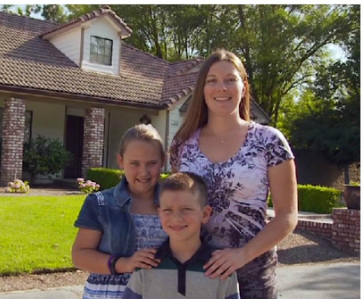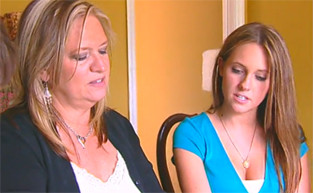 在成人世界中,我们除了日常的水电,食品,衣服,住房和交通等必需的开支以外,我们还必须保持一定数量的存款,以应付家人生病和亲朋结婚送礼之类的突发事件,以及购买大件电器等贵重物品。 另外,我们还必须为孩子上学和退休养老积累资金。资助失学儿童读书,或帮助地震孤儿渡过难关,这些都是很高尚值得提倡的事情,但助人为乐也需要财力支持。 教孩子理财,最重要的就是要教会他们不要把钱全部花光用尽,而是要从小养成储蓄和投资的观念和习惯。 “一分为四”理财系统经过无数美国家庭试用证明是一套行之有效的理想系统,是提高孩子财商的最佳工具。“一分为四”简单说来就是强调孩子把到手的每一块钱都按一定比例分成四份,分别存到四个储蓄罐中,分别用于“支出和短期储蓄”,“长期储蓄”,“投资增长”,“爱心奉献”四种用途。遵照这个系统,孩子们从小学会(1)仅靠部分收入就可以生存;(2)计划用钱;(3)为了买大件物品而存钱;(4)钱可以生钱。掌握这些财务管理的基本概念,孩子将受益终身。 支出和短期储蓄Spending (最多70%) : 用于购买孩子想要的零食,小玩具,小朋友过生日送朋友礼物等等。 给孩子支配这部分钱的自由,不要过多干涉。但孩子必须学会计划用钱,这个存钱罐里的钱如果用完,决不可以从其它三个罐子里去拿。如果在商店看上什么,孩子须用“支出”罐里的钱支付,如果“支出”罐里没钱,也不许抱着大人的腿耍泼问大人要。 长期储蓄 Saving(至少10%):可用于支付可以预见的孩子的远期支出,比如暑期旅游,参加某种课外辅导,或者购买孩子想要的大件贵重物品如手持电子游戏机,旱冰鞋和滑板之类。 孩子为了存钱买大件,可以减少支出和短期存款的比例,增加长期储蓄的比例,以便更快地存够钱。 家长为了鼓励孩子多存钱,还可以付给孩子利息,或者当孩子存够了一定数目后,给予一定比例的奖金。投资增长 Investing(至少10%): 可以用来支付孩子上大学的部分学费,或者帮助孩子买他/她的第一辆车等等。孩子学会钱可以生钱的观念,也将终生受益无穷。 待“投资增长”罐子里钱达到一定数目后,跟孩子一起把这部分钱拿去银行,给孩子开个户头,让孩子的钱在银行挣利息。孩子帐上的钱更多一些时,可以帮他/她开办一个投资帐户,买进一些股票和债券,也可以借机项孩子灌输些“利息”、“回报”和“风险”之类的财经知识。 爱心奉献 Giving (至少10%): “We make a living by what we get. We make a life by what we give.” --Winston Churchill 英国伟大的前首相丘吉尔说过:“我们靠我们的所得活着,但我们的给予让我们的生命更有价值。”不管是救助非洲艾滋孤儿,给他们提供清水和食品,还是帮助贫困山区失学儿童重新回到学校,或者帮助动物保护组织救助受虐待的动物,所有这些慈善之举都可以改善这个世界,并净化我们的心灵。所以我们应该鼓励小孩子从小开始富有爱心,帮助他人。 尽管很多人爱心奉献是不求回报的,但除了精神上的愉悦和满足,行善的人往往也会获得物质上的回报。比如一个医生如果长期坚持帮助他人,人们就会觉得他富有爱心,就都愿意去找他看病,而且愿意介绍其他病人给他。所以这个医生最终完全有可能赚到更多的钱。再比如一个企业家因生意扩大需要资金和合伙人,因为他平时乐善好施,大家都知道他心地善良正直,所以大家就愿意跟他一起合作。这些人脉关系有一天也会给他带来财富。 Why It Is Time To Retire 401(K)? |

Brigette Hunter was just 27, and a new mother, when she was widowed. Her husband, Matt, was killed in a car accident. To compound her pain, she had to borrow money from her parents to pay for Matt’s funeral, as he had no life insurance.
Just six months later, friends introduced Brigette to Anthony. She wasn’t looking for a relationship, but Anthony was persistent. “He could sell snow to an Eskimo,” Brigette says. They married and soon opened their own electrical business. With the business and three children to support, the couple bought small life insurance policies. Lisa Rinehart, a financial professional, met them several years later, determined that they needed considerably more life insurance, and helped them through the buying process.
A year later, Anthony found a bump on his chin. He had recently walked through a spider web at a job site and assumed it was a bite. But it didn’t go away, and Anthony learned it was melanoma, a cancer he had battled as a teenager. It soon spread to his lungs, brain and bones.
Still wanting to provide for his family, Anthony invoked a provision in one of his life insurance policies that allowed for an early payout to a terminally ill policyholder, and used part of his death benefit to buy a nicer home for his family. He oversaw renovations and was able to spend a month in the house before he died at 34.
The remaining money from Anthony’s policies helped Brigette pay off medical bills and meet her household expenses. It also kept the business afloat. She could make payroll and pay vendors while she and her foreman reassured clients that the business would continue. “Without the money I would have had to close,” she says.
More real life stories: http://www.lifehappens.org
Just six months later, friends introduced Brigette to Anthony. She wasn’t looking for a relationship, but Anthony was persistent. “He could sell snow to an Eskimo,” Brigette says. They married and soon opened their own electrical business. With the business and three children to support, the couple bought small life insurance policies. Lisa Rinehart, a financial professional, met them several years later, determined that they needed considerably more life insurance, and helped them through the buying process.
A year later, Anthony found a bump on his chin. He had recently walked through a spider web at a job site and assumed it was a bite. But it didn’t go away, and Anthony learned it was melanoma, a cancer he had battled as a teenager. It soon spread to his lungs, brain and bones.
Still wanting to provide for his family, Anthony invoked a provision in one of his life insurance policies that allowed for an early payout to a terminally ill policyholder, and used part of his death benefit to buy a nicer home for his family. He oversaw renovations and was able to spend a month in the house before he died at 34.
The remaining money from Anthony’s policies helped Brigette pay off medical bills and meet her household expenses. It also kept the business afloat. She could make payroll and pay vendors while she and her foreman reassured clients that the business would continue. “Without the money I would have had to close,” she says.
More real life stories: http://www.lifehappens.org
Melinda Canter: Life Changes⎯OvernightSteven and Melinda Canter had created a good life for themselves in Michigan. Steven had a successful construction company that he built from scratch. They filled their home with the love and laughter of children: first came Brijna, followed by three boys.
Then, about 10 years into building his business, Steven got injured on the job; his lungs got contaminated by toxic paint. As a result, he was in and out of the hospital, and suffered from depression because of the toll the injury was taking on his body, his business and his family. Melinda did her best to keep the family afloat financially. It was during this time that she let their life insurance policies lapse, thinking they could save money for awhile and re-apply later. That would turn out to be a decision she’d regret.
After Steven’s company went bankrupt, the Canters sold their house and moved to Florida where Steven could better recuperate and the family could have a fresh start. Before they even got settled, however, tragedy struck. Brijna’s 10-year-old brother, Brandon, went to wake his father one morning only to find that he had died during the night. He was only 44 years old.
Melinda struggled to keep the family on track after Steven’s death, working 80 hours a week—often into the wee hours of the morning. But it was not enough. The family was evicted three times and eventually had to split up and live with various family friends. “It was a blessing to have people help us the way they did, but it would have been a bigger blessing to have life insurance,” says Brijna.
After high school, Brijna felt she needed to stay home to help care for her three young brothers, as her mother was working full time. She became a second mom to them.
Now that the boys are older, Brijna, with the help of scholarships, is able to attend Seminole Community College and is working toward her degree. But the trauma of her father’s death and the impact it had on her family lingers. “I can only imagine how different life would be if my parents hadn’t cancelled the life insurance policy—not only emotionally, but physically and financially as well,” she says.
More real life stories: http://www.lifehappens.org
Then, about 10 years into building his business, Steven got injured on the job; his lungs got contaminated by toxic paint. As a result, he was in and out of the hospital, and suffered from depression because of the toll the injury was taking on his body, his business and his family. Melinda did her best to keep the family afloat financially. It was during this time that she let their life insurance policies lapse, thinking they could save money for awhile and re-apply later. That would turn out to be a decision she’d regret.
After Steven’s company went bankrupt, the Canters sold their house and moved to Florida where Steven could better recuperate and the family could have a fresh start. Before they even got settled, however, tragedy struck. Brijna’s 10-year-old brother, Brandon, went to wake his father one morning only to find that he had died during the night. He was only 44 years old.
Melinda struggled to keep the family on track after Steven’s death, working 80 hours a week—often into the wee hours of the morning. But it was not enough. The family was evicted three times and eventually had to split up and live with various family friends. “It was a blessing to have people help us the way they did, but it would have been a bigger blessing to have life insurance,” says Brijna.
After high school, Brijna felt she needed to stay home to help care for her three young brothers, as her mother was working full time. She became a second mom to them.
Now that the boys are older, Brijna, with the help of scholarships, is able to attend Seminole Community College and is working toward her degree. But the trauma of her father’s death and the impact it had on her family lingers. “I can only imagine how different life would be if my parents hadn’t cancelled the life insurance policy—not only emotionally, but physically and financially as well,” she says.
More real life stories: http://www.lifehappens.org
Categories
All
1-General Knowledge 背景知识
2-Concepts 理财理念
College Funding 大学学费
Estate Planning 遗产规划
Life Insurances 人寿保险
Long-term Care 长期护理
Retirement 退休规划
Tax Tips 省税规划
Teach Kids Money
外国人在美买保险
Archives
August 2023
August 2022
March 2022
October 2021
November 2020
October 2020
January 2019
June 2018
May 2018
December 2017
November 2017
September 2016
February 2015
July 2014
March 2014
February 2014
January 2014



